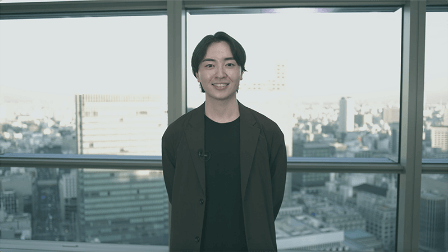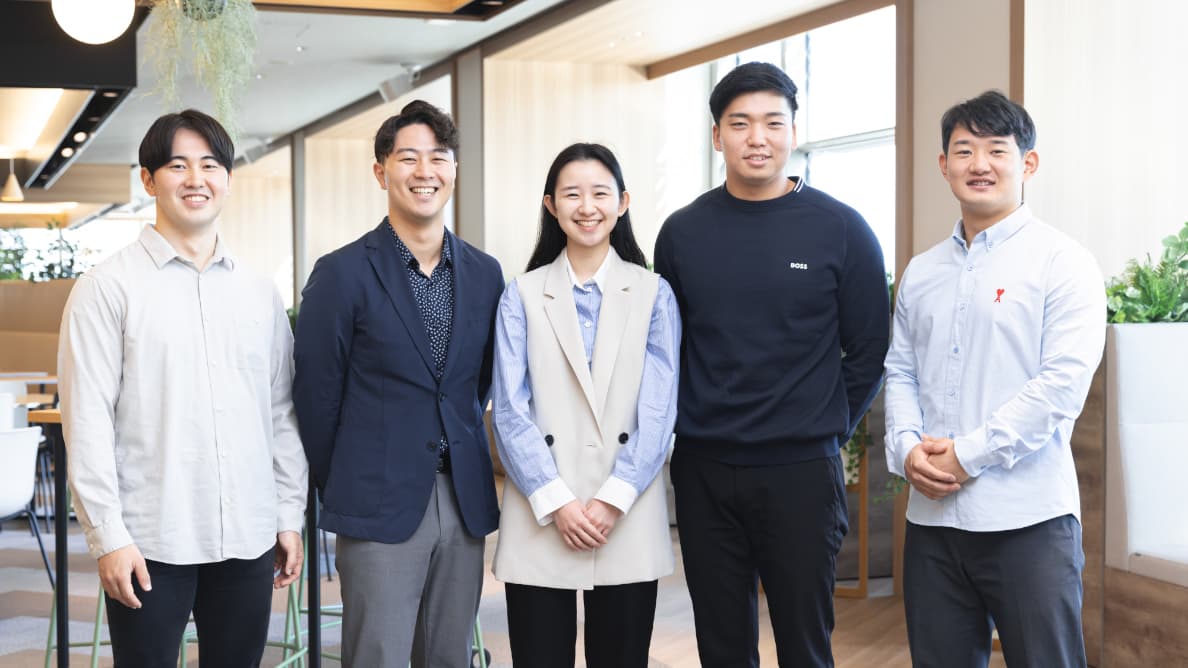
- TOP
- Enriching+TOP
- Highlighting a Popular Project From Sumitomo Corporation’s In-house Magazine! Interview with Yuka Ota, the first female Japanese safari guide in South Africa
2024.10.25
Culture
Highlighting a Popular Project From Sumitomo Corporation’s In-house Magazine! Interview with Yuka Ota, the first female Japanese safari guide in South Africa

Sumitomo Corporation has an in-house magazine loved by company employees for over 50 years. Here, we showcase popular projects from the magazine featuring Sumitomo Corporation employees interviewing prominent figures from diverse fields.
Today we feature an interview with Yuka Ota, a safari guide who has taken on the challenge of working in the Republic of South Africa. This interview was made possible through employees involved in editing the magazine, who asked Yuka about the reality on the ground and her wildlife conservation activities. One employee interviewer for this article also had personal experience of safari tours and asked many meaningful, intriguing questions.
-

Yuka Ota
Yuka was born in 1995 in the United States. In 2015, while studying at Rikkyo University, she enrolled in a safari guide training school in South Africa, obtaining the local FGASA certification. From 2017 to 2020, she worked as an exclusive safari guide at Greater Kruger National Park in South Africa. Since 2020, she has been a safari guide and presenter for the safari tour and video production company PaintedDog TV. Her goal is to protect wildlife and preserve local ecosystems. Yuka has also published books, including My Workplace is the Savanna! (published by Kawade Shobo Shinsha).
EmployeeI was stationed in South Africa for 10 years, and I often visited nature reserves. Why did you become a safari guide?
YukaEver since I was a child, I wanted a job that involved protecting animals. I considered becoming a veterinarian but struggled with science-based subjects. While still in high school, I gave up on veterinary medicine and took an interest in a career protecting wildlife habitats. As part of my seminar project at university, I visited the grasslands of Mongolia and the jungles of Malaysia to study the impact of tourism on the natural environment. Off campus, I had a part-time job with an environmental NGO, and I also have participated in the volunteer projects where I planted trees in a tropical rainforest.
EmployeeYou were clearly active in many different roles.
YukaWhile at university, I found a savanna conservation project in Botswana online and signed up as a volunteer. When I first stepped onto the savanna, I was in awe. The vastness, the raw beauty of the wild animals; it was unlike anything I had ever seen. I understood nature's expanse and the lives of the villagers living there on a new level. I realized that these natural environments on our shared planet are invaluable and wanted to protect them. In Botswana, I met a French woman who was a safari guide, and meeting her encouraged me to become a safari guide too, so that I could contribute to wildlife conservation by helping people understand the real situation in these areas.

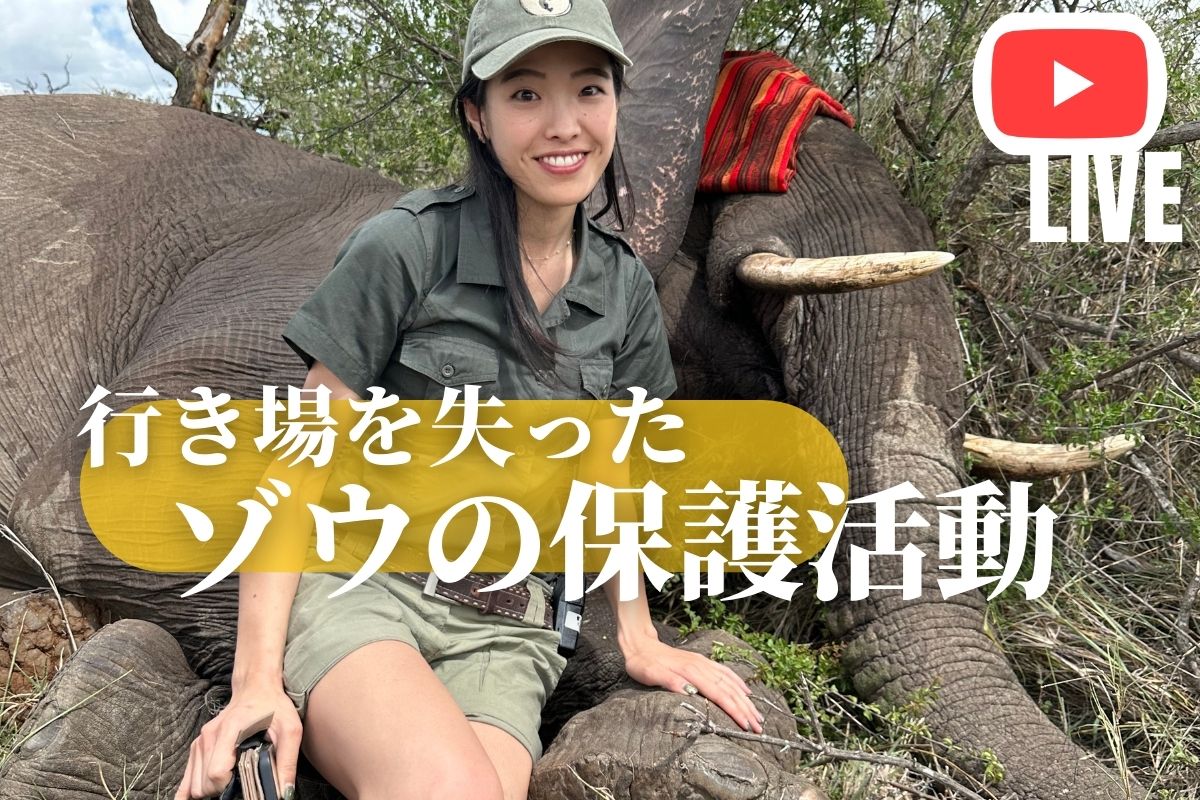
EmployeeI have also visited Kruger National Park. What would you like people who join your tours to understand?
YukaMost visitors come because they're interested in wildlife and want to see nature's vast expanse. While I think the entertainment side of the experience is important, I also want people to come away with more than just seeing the animals. For example, I explain why the animals here originally lived in a larger area and now have to live in reduced zones, and how the ecosystem and symbiotic relationships among wild animals are in perfect balance. I also bring up the topic of conservation efforts, and by the end of the tour, ideally the participants want to protect the animals, too.
EmployeeI participated in a safari tour you led as part of a university seminar project. Even then, I was very impressed.
YukaOne part of my mission as a safari guide is inspiring people to share their experiences after returning to Japan. I hope they will become ambassadors that share what they've seen and will work with others to protect these habitats. It's so rewarding to see many people taking action and communicating on social media and through Sumitomo Corporation's in-house magazine, in this case.
EmployeeWhat is the current situation regarding poaching?
YukaPoaching remains a heartbreaking issue. There are two main types: commercial – often driven by international demand for items like rhino horns – and subsistence, where locals hunt for food because they have nothing to eat. During the pandemic, I saw a spike in the latter, as many people lost their livelihoods. Although the pandemic is now over, poaching remains a threat to the savanna.
EmployeeWhat is the toughest thing about being a safari guide?
YukaDealing with the forces of nature, we are reliant on weather and luck. You can hone your skills and follow a trail to find an animal, but even then, the species you are looking for simply might not appear. The Greater Kruger National Park, where I am a guide, consists of the Kruger National Park, which is a bit larger than Japan's island of Shikoku, and a number of adjacent private reserves. The animals move freely within the entire area, so sometimes, it's simply impossible to find them.
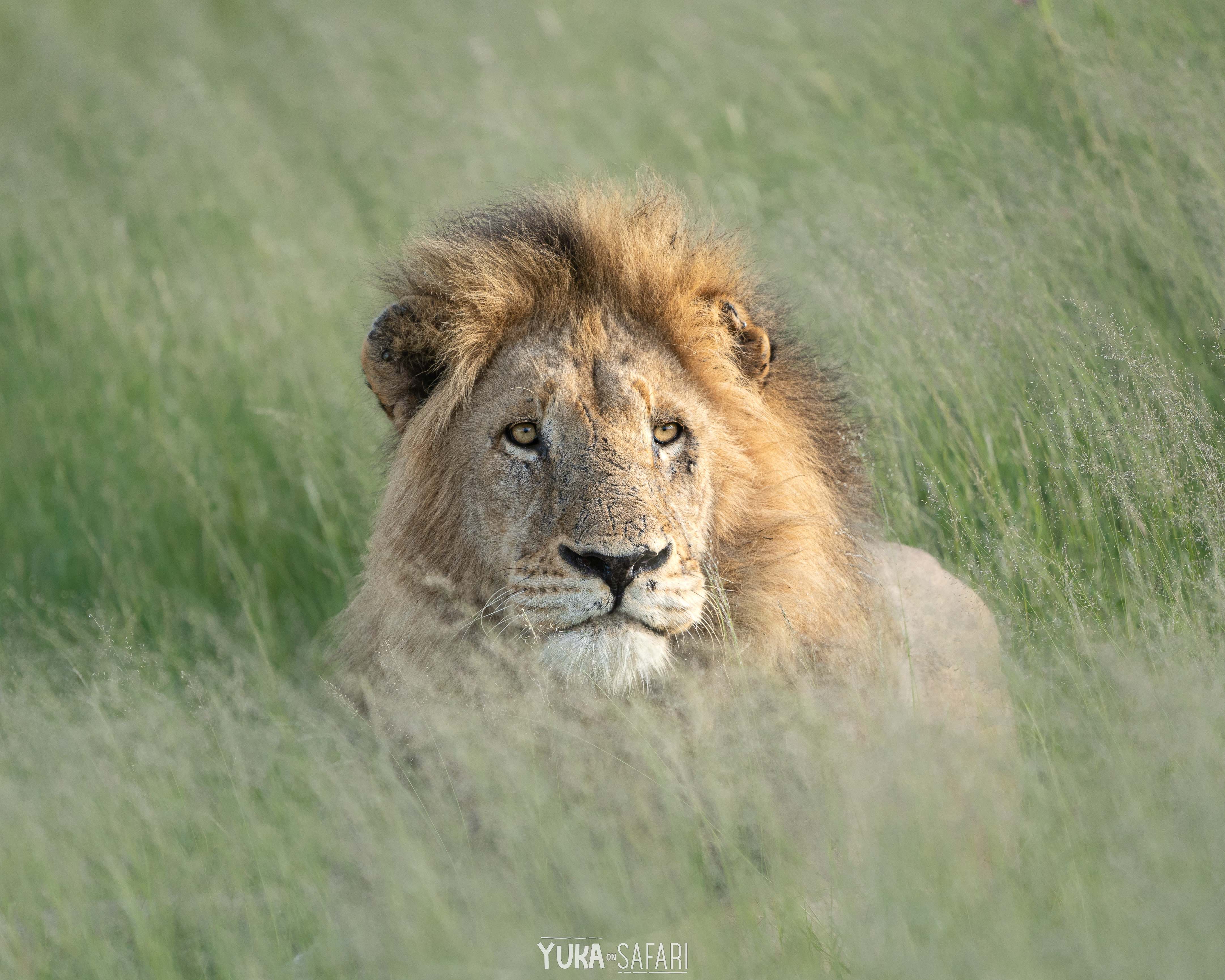

EmployeeWhat is your favorite animal?
YukaYou might expect a more unique answer, but I like lions! (laughs) Male lions are so cool. When they are napping, they look like big house cats, but when they hunt prey, their incredible strength is on full display. Their aura instantly shifts the atmosphere in the savanna and makes all nearby herbivores tense, which is absolutely fascinating.
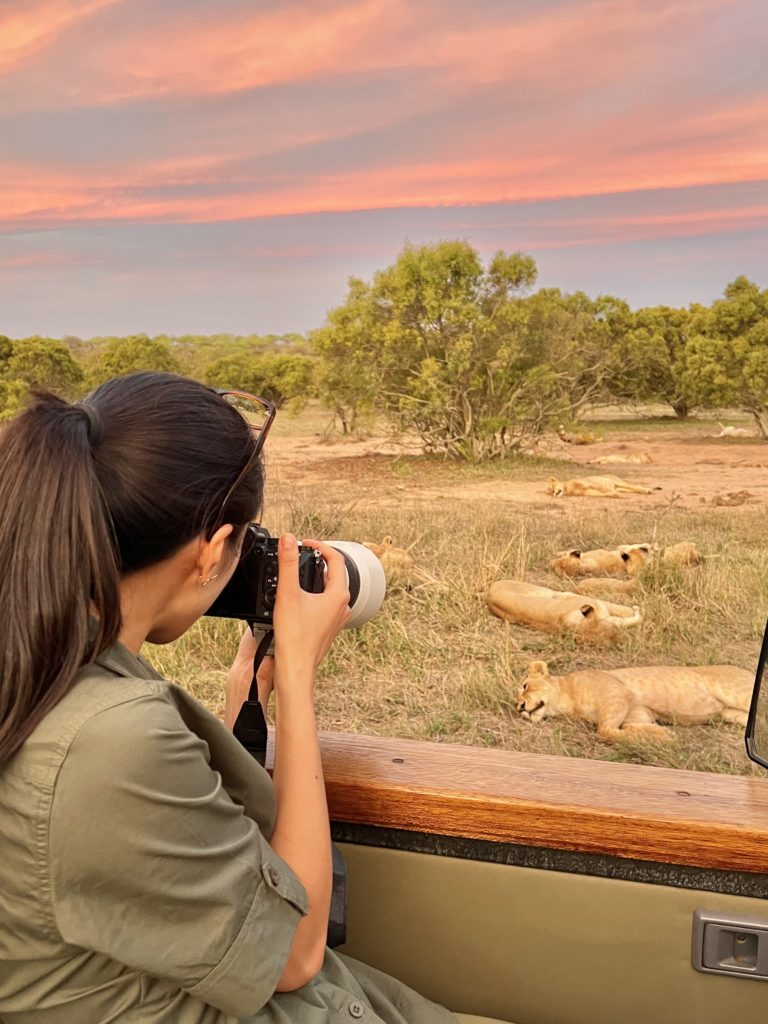
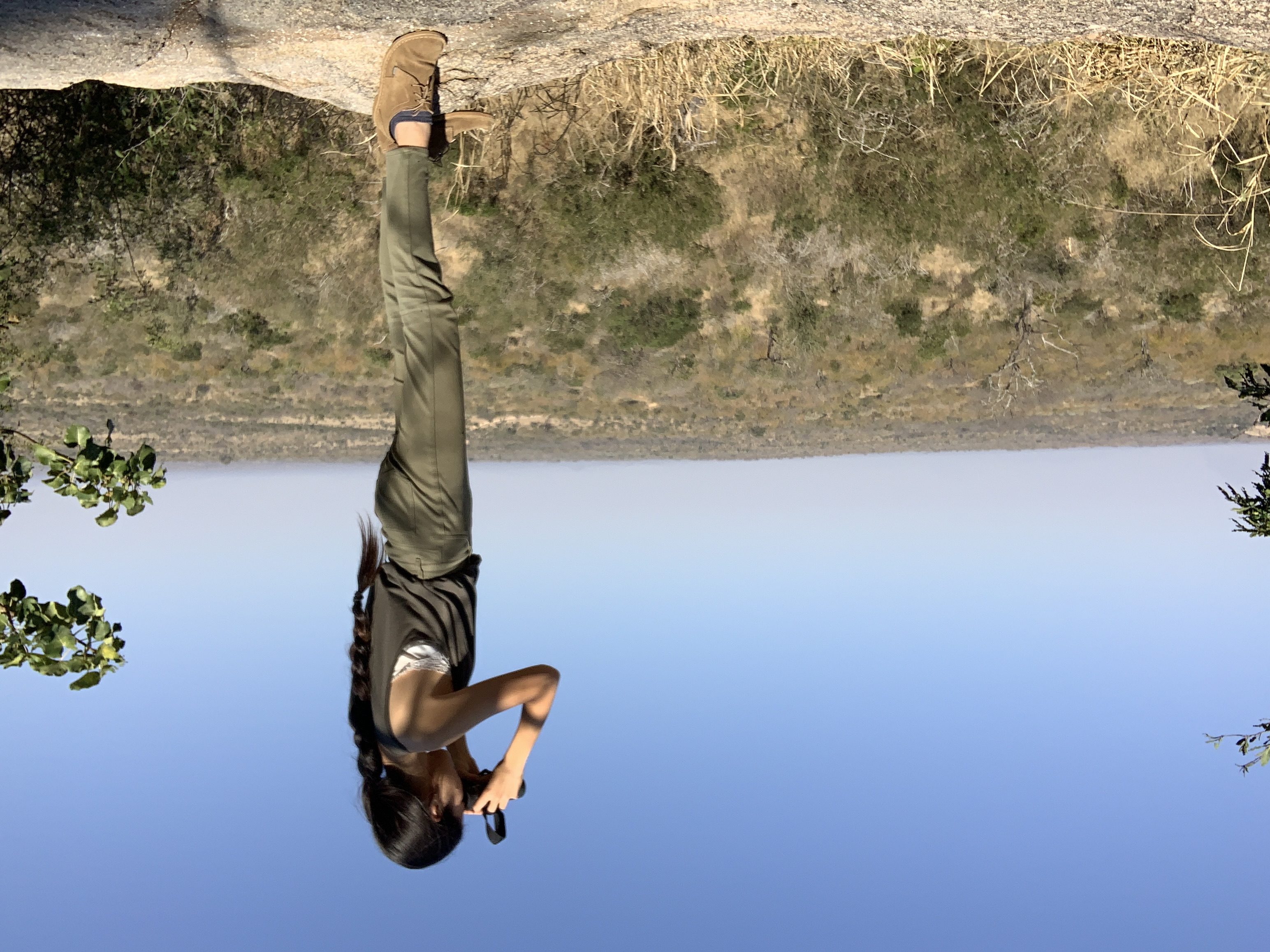
EmployeeHow do you spend your days off?
YukaI do exactly the same thing at work and on vacation. (laughs) However, when working I’m always thinking about what I want to convey to visitors, so on my days off, it's a different feeling – I can do what I like. I drive alone through the savanna and stop to rest near African elephants. Listening to the sounds of elephants pulling up grass and munching away is a very relaxing and indulgent way to spend time for me.
EmployeeHave there been any major developments in your world recently?
YukaThe coronavirus pandemic led to the start of virtual safari tours with Painted Dog TV, allowing people worldwide to view live safaris broadcast online. Since the pandemic wound down, we have been guiding visitors in South Africa, as well as Botswana and Namibia. Having our work featured by Japanese media has brought more applicants for safari tours, and last year we welcomed visitors from Japan on a daily basis. I’m really happy about this – when I first started as a safari guide, we didn't have any Japanese visitors at all.
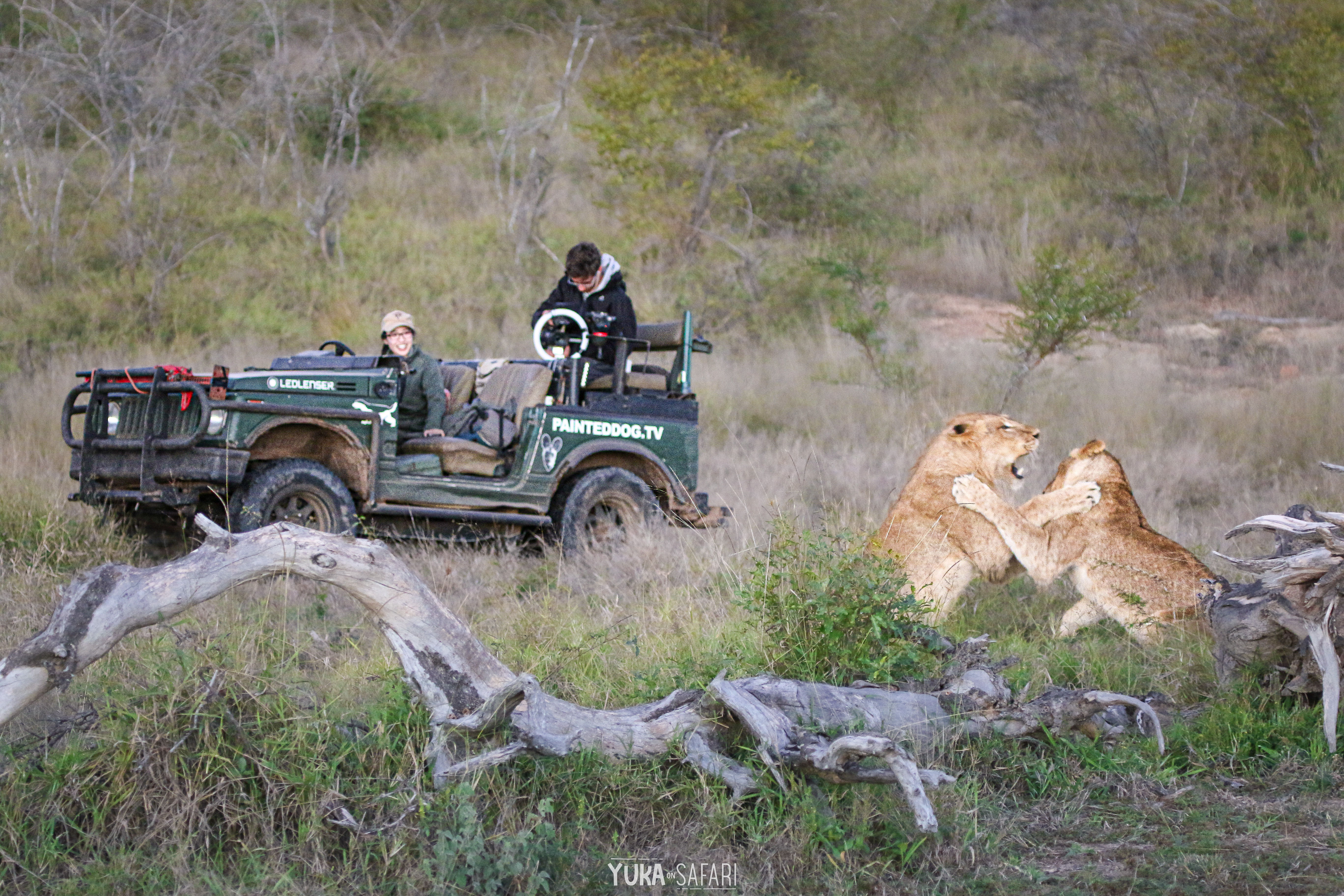
EmployeePlease tell us about your dream for the future.
YukaMy dream is simple: to protect the savanna and its animals for as long as I live. If I can inspire others to do the same, then I know I've done my part. To preserve the savanna ecosystem for subsequent generations, a system of economic benefits must be kept in place. I would like to plan tours that only I can offer as a Japanese safari guide, and turn them into a viable business. Someday I would like to be the first Japanese guide to own a lodge in the Kruger area so that I can do more to protect the local environment.
I have raised funds for conservation work through crowdfunding and have been broadcasting my activities live on my website to my supporters. I’d like to connect with everyone in Japan who supports my work with local organizations in need of help and protection, and continue acting as a bridge between Africa and Japan.
AFTER THE INTERVIEW
■Yuka is upbeat and full of energy. She was very attentive to the wide variety of questions we asked and freely shared her opinions, giving us time to think about the symbiosis between people, nature and animals. She really detailed the fascination of wild animals and safari tours, and I’m looking forward to my next safari – if I get the chance!
■Yuka remains committed to her original goal of working to protect animals. Although she changed her mind along the way by seeking to be a ranger rather than a veterinarian, she eventually became a safari guide when becoming a ranger proved difficult. I was reminded of the saying that "good fortune and bad fortune are unpredictable; hence, we should not rejoice in good fortune, nor be saddened by bad fortune."
■ I didn't realize how quickly a one-hour interview could go by! We heard a lot about Yuka's love for animals, her thoughts on the changing environment where they live, and her vision for the future. Taking part in this interview made me want to join Yuka's safari tour again!
Image courtesy of Yuka Ota ⒸYuka on Safari





